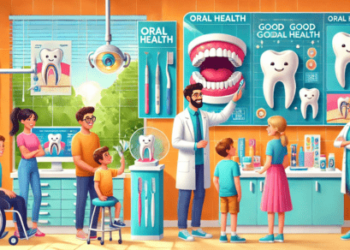1. Introduction to Professional Plastic Surgery
Professional plastic surgery involves medical procedures designed to alter, restore, or enhance physical appearance. These procedures are performed by certified plastic surgeons with the expertise to ensure safety and achieve desired aesthetic results.
2. The Evolution of Plastic Surgery
Plastic surgery has evolved significantly from its early days. Originally developed for reconstructive purposes, modern plastic surgery now includes a wide range of cosmetic procedures that cater to various aesthetic needs and preferences.
3. Common Types of Plastic Surgery
There are several types of plastic surgery, including rhinoplasty (nose reshaping), breast augmentation, liposuction, facelifts, and tummy tucks. Each procedure targets specific areas of the body to enhance or restore appearance.
4. Choosing the Right Plastic Surgeon
Selecting a qualified plastic surgeon is crucial for a successful outcome. Look for board-certified surgeons with extensive experience and positive patient reviews. A good surgeon will provide a thorough consultation and set realistic expectations.
5. Understanding the Consultation Process
The consultation process is an essential step in plastic surgery. During this meeting, the surgeon assesses your needs, discusses potential procedures, and explains the risks and benefits. This is also the time to ask questions and express your goals.
6. Preparing for Surgery
Proper preparation is key to a smooth surgery and recovery. Follow your surgeon’s instructions, which may include stopping certain medications, avoiding smoking, and arranging for post-operative care.
7. The Day of Surgery: What to Expect
On the day of surgery, you will undergo pre-operative preparations, including marking the surgical sites and administering anesthesia. The length of the surgery varies depending on the procedure but typically lasts a few hours.
8. Post-Surgical Care and Recovery
Post-surgical care is vital for healing and achieving optimal results. Follow your surgeon’s aftercare instructions, which may include wearing compression garments, taking prescribed medications, and attending follow-up appointments.
9. Managing Pain and Discomfort
Pain and discomfort are common after plastic surgery. Your surgeon will prescribe pain relief medications and provide tips for managing discomfort, such as using cold compresses and resting adequately.
10. Understanding Risks and Complications
As with any surgery, plastic surgery carries risks. Potential complications include infection, scarring, and adverse reactions to anesthesia. Discuss these risks with your surgeon and ensure you understand how to minimize them.
11. The Importance of Realistic Expectations
Having realistic expectations is crucial for satisfaction with the outcome. Understand that plastic surgery can enhance your appearance but may not completely transform it. Open communication with your surgeon can help align your goals with achievable results.
12. Long-Term Maintenance and Care
Maintaining the results of your plastic surgery requires ongoing care. This may include a healthy lifestyle, regular exercise, and periodic touch-up procedures to sustain the desired look.
13. The Role of Technology in Plastic Surgery
Advancements in technology have revolutionized plastic surgery. Techniques such as laser treatments, minimally invasive procedures, and 3D imaging have improved precision, safety, and patient outcomes.
14. The Psychological Impact of Plastic Surgery
Plastic surgery can have a significant psychological impact, boosting self-esteem and confidence. However, it’s important to address any underlying emotional issues and ensure that your motivations for surgery are healthy and realistic.
15. The Cost of Plastic Surgery
The cost of plastic surgery varies widely based on the procedure, surgeon’s expertise, and geographic location. Be sure to discuss all costs upfront, including surgeon fees, anesthesia, facility charges, and post-operative care.
16. Financing Options for Plastic Surgery
Many practices offer financing options to make plastic surgery more accessible. These may include payment plans, medical credit cards, and loans specifically designed for medical procedures.
17. Plastic Surgery for Medical Reasons
While often associated with aesthetics, plastic surgery also addresses medical issues. Reconstructive surgery, for instance, can repair damage from accidents, congenital deformities, or cancer treatments, significantly improving quality of life.
18. Non-Surgical Alternatives
Non-surgical options, such as Botox, dermal fillers, and chemical peels, offer temporary improvements with minimal downtime. These treatments are ideal for individuals seeking subtle enhancements without undergoing surgery.
19. Celebrity Influence on Plastic Surgery Trends
Celebrities often influence plastic surgery trends, with many people seeking procedures to emulate their favorite stars. While celebrity looks can be inspirational, it’s important to choose procedures that suit your unique features and goals.
20. Addressing Myths and Misconceptions
Plastic surgery is surrounded by myths and misconceptions. Common myths include beliefs that all procedures are extremely painful or that results are always unnatural. Educating yourself about the realities can help make informed decisions.
21. The Importance of Post-Operative Support
Post-operative support from friends, family, and healthcare professionals is crucial. Emotional and physical support during recovery can significantly enhance the healing process and ensure a more positive experience.
22. Advances in Minimally Invasive Procedures
Minimally invasive procedures, such as endoscopic surgery and laser treatments, have gained popularity due to their reduced recovery times and minimal scarring. These techniques offer effective results with less risk compared to traditional surgery.
23. Ethical Considerations in Plastic Surgery
Ethical considerations are paramount in plastic surgery. Surgeons must prioritize patient safety, informed consent, and realistic expectations, ensuring that all procedures are performed with the highest standards of care and integrity.
24. The Future of Plastic Surgery
The future of plastic surgery looks promising with continuous advancements in technology and techniques. Innovations such as stem cell therapy and regenerative medicine hold potential for even more effective and less invasive procedures.
25. Final Thoughts on Professional Plastic Surgery
Professional plastic surgery offers numerous benefits, from enhancing appearance to improving quality of life. By choosing a qualified surgeon, understanding the process, and maintaining realistic expectations, you can achieve satisfying and lasting results.
/////////////////////////////////










